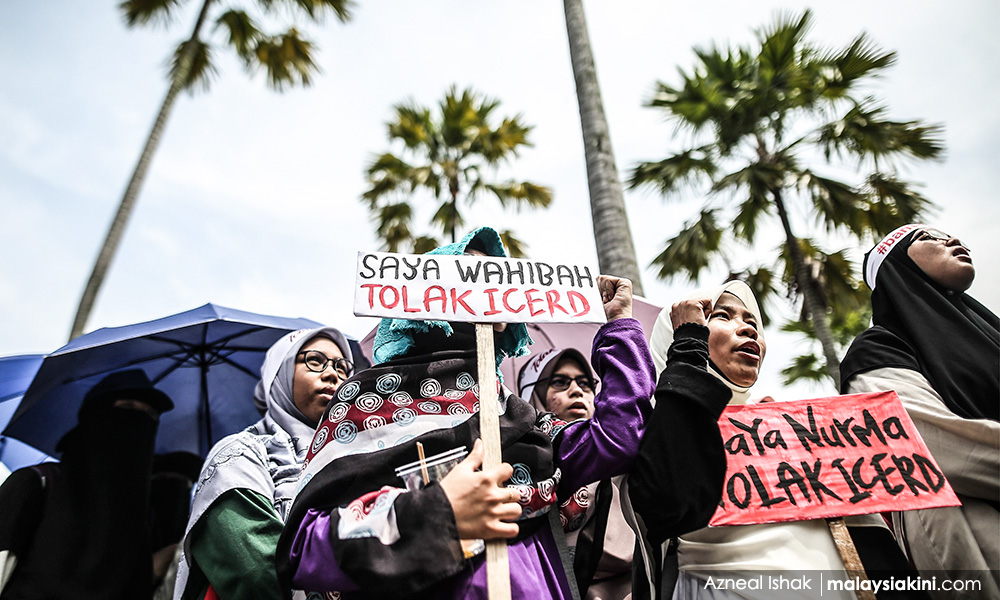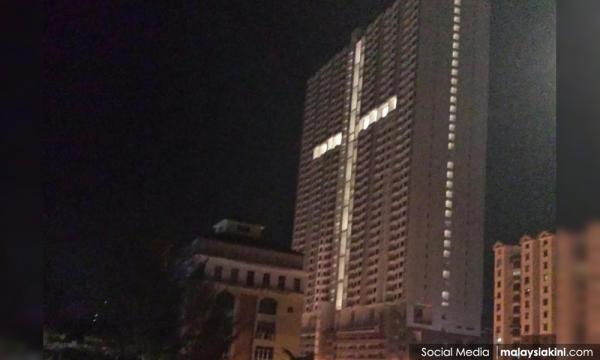ADUN SPEAKS | Last Sunday, I was surprised to learn that a statement I wrote chastising Umno MP Reezal Merican for politicising the lights of a building resembling a cross in Penang had generated so much interest from netizens.
In just over a day, Malaysiakini’s posting of the news in its Facebook page had elicited over one thousand comments, mostly from non-Malays, giving Reezal Merican flak for what many of them saw as turning a trivial matter into a racial and religious one.
What was equally startling was that the same news, which was published in Sinar Harian’s facebook page – also drew over one thousand comments in a day, this time, with the majority of Malay readers being very upset and highly critical of my statement.
Let me be clear, I’m not here to write about how many comments my statement had received, but rather to alert us of the grave racial and religious divide we face in our country today. So please bear with me as I explain.
In the Sinar Harian Facebook page, I was called all sorts of animal names, pigs and dogs being the favourites.
Of course, there was also a lot of profanity thrown at me, peppered with references made to male and female reproductive parts, of which I will not go into details. One commentator had even suggested that I be staked to the “cross”.
One may agree or disagree with my statement – but the point I had wished to make in my statement was that everyone should be free in our country to express their religious affinity openly and publicly without fear – and that we should not pander to opportunistic extremist groups who are always looking for issues to exploit and claim that Islam is under threat, often without any basis.
But really, my personal views on this issue are not important. What is important though, is the deep racial and religious divide between Malays and non-Malays in our country as seen from opposite ends of the comments posted in Malaysiakini and Sinar Harian.
Most of the comments in Malaysiakini came from non-Malays who could not fathom why symbols of “crosses” are deemed so offensive to Muslims, and some admittedly went overboard in making fun of Muslims which was not right.
Whereas – and here is where we need to sit up and pay attention – many Sinar Harian commentators felt that their race and religion were being unfairly treated.
There were several themes that kept repeating in Sinar Harian’s commentator posts that are worth noting.
The first was the view that the Malays are the landlords or “tuan rumah” of this land, and that the non-Malays are merely squatters, occupants or “penumpang”, and as such, the non-Malays ought to be sensitive to Malay sensitivities.
The second view was that under our constitution, this is a Muslim country, and other religions cannot be excessively and openly promoted in Malaysia.
The third view is that – non-Malays are becoming bolder and excessive in their demands, more so after Pakatan Harapan won in GE14 in which the Malays have become “dibangsatkan”.
There were also one or two more extreme exchanges, in which murder, an uprising and bloodshed were threatened – but these comments were really limited to only one or two of the more radical comments. Most had called for the minority to respect the sensitivities of the majority.
Now, whether those opinions expressed above represent the majority or minority views of Malays in this country – I will leave it to the academics and politicians to debate over.
The need to have 'uncomfortable conversations'
Personally, I am not angry, neither am I upset with the commentators and their views expressed in Sinar Harian. What I am gravely concerned about is why there are still so much ill-feelings, distrust and unwillingness amongst Malays in accepting non-Malays as equal citizens and of equal standing after 61 years of independence and nation building.
Race and religion, without a doubt, are extremely difficult issues to tackle in our very divisive country.
For many politicians, race and religion is the last thing they want to touch on. They will talk about corruption, abuse of power, and about fixing the economy – and hopefully – as some politicians will tell you, if we get our economy going, then there will not be racial or religious strife, and as such, we will not have to deal with it.

I do not agree with such views.
Instead, I believe that we have to start having uncomfortable conversations about these difficult issues, until we learn to be comfortable talking about them.
If we don’t face them, we are just ignoring the elephant in the room. Furthermore, we will never get to the bottom of it and we will never start having frank discussions (albeit difficult and uncomfortable) about what divides us as a nation, and how we will go about fixing it.
Whether we like or not, issues such as the “cross” lit building in Penang, Icerd (International Convention on the Elimination of All Forms of Racial Discrimination), RUU355 (Syariah Courts (Criminal Jurisdiction) Act 1965 (Act 355)) and the latest objection against state funding of New Era College, touching on race and religion will continue to dominate our political landscape in the next four years and many years to come after that.
In this regard, we have to look to our Malay leadership in Harapan to start having these difficult public conversations on race and religion.
Their leadership and voice of moderation are what is most sorely needed in times when divisive issues concerning race and religion are raised in the public domain.
One commonality in the comments found both in Malaysiakini and Sinar Harian, was the question asked by both sides of the divide, on why the Malay leaders in Harapan are not speaking up on this issue. I rest my case.
GOOI HSIAO LEUNG is the assemblyperson of Bukit Tengah in Penang.
The views expressed here are those of the author/contributor and do not necessarily represent the views of Malaysiakini.


